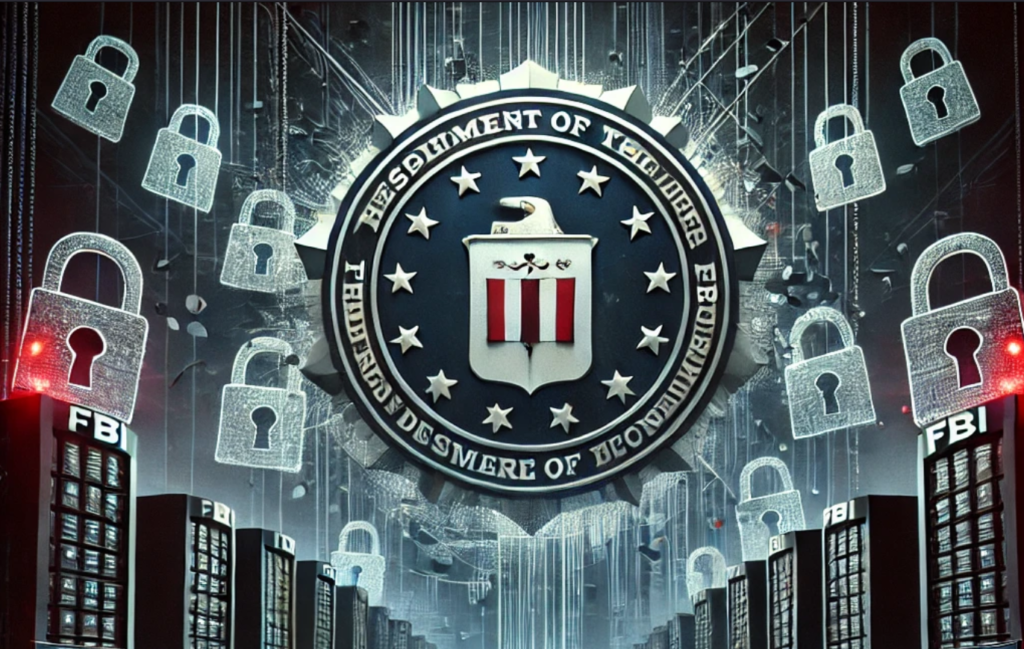FBI Shuts Down Dispossessor Ransomware Group’s Servers Across U.S., U.K., and Germany

On Monday, the U.S. Federal Bureau of Investigation (FBI) announced a significant disruption to the operations of the emerging ransomware group known as Radar/Dispossessor. This coordinated effort resulted in the dismantling of critical online infrastructure associated with the group across multiple countries.
Operation Details:
The FBI’s crackdown led to the seizure and shutdown of:
- Three servers in the United States
- Three servers in the United Kingdom
- Eighteen servers in Germany
- Eight U.S.-based criminal domains
- One German-based criminal domain
The Dispossessor group, also known by the moniker “Brain,” has rapidly gained notoriety since its inception in August 2023. It has become a prominent player in the ransomware landscape, targeting small to mid-sized businesses and organizations across various sectors, including production, development, education, healthcare, financial services, and transportation.
Global Impact and Victimization:
To date, up to 43 companies across multiple countries have been identified as victims of Dispossessor’s attacks. The affected countries include Argentina, Australia, Belgium, Brazil, Canada, Croatia, Germany, Honduras, India, Peru, Poland, the United Arab Emirates, the United Kingdom, and the United States. The group’s global reach underscores its ability to inflict widespread damage across diverse regions.
Ransomware-as-a-Service (RaaS) Model:
Dispossessor operates under the ransomware-as-a-service (RaaS) model, similar to other e-crime gangs like LockBit. This model involves exfiltrating victim data to hold for ransom alongside encrypting their systems. Victims who refuse to comply with the demands are threatened with exposure of their sensitive data.
Attack Methods and Tactics:
Dispossessor’s attack chains exploit security vulnerabilities and weak passwords to gain access to target systems. Once inside, the group encrypts the victim’s data and intensifies the pressure to pay by contacting other individuals within the victim organization. They use various methods, including emails with links to video platforms showcasing stolen files, to escalate the blackmail pressure.
Connection to Other Groups:
Radar and Dispossessor are reportedly connected, sharing private tools and methods, and dividing profits. It is believed that members of Dispossessor are former affiliates of LockBit who have launched their own operations. Prior investigations by cybersecurity firm SentinelOne revealed that Dispossessor has been involved in reposting data previously leaked by other operations such as Cl0p, Hunters International, and 8Base.
Law Enforcement Efforts and Trends:
The takedown of Dispossessor is part of a broader global effort by law enforcement agencies to combat the persistent ransomware threat. Recent trends highlight an increase in attacks via contractors and service providers, illustrating how threat actors exploit trusted relationships to launch large-scale, often undetected attacks.
Data from Palo Alto Networks Unit 42 shows that the most impacted industries in the first half of 2024 were manufacturing (16.4%), healthcare (9.6%), and construction (9.4%). Additionally, countries like the U.S., Canada, the U.K., Germany, Italy, France, Spain, Brazil, Australia, and Belgium have been among the most targeted.
Emerging Threats and RaaS Evolution:
The rise of new and revamped ransomware groups is notable, with 21 out of 68 unique groups posting extortion attempts. Smaller organizations, which often have less mature security measures, are increasingly targeted. The professionalization of RaaS models reflects a growing sophistication, with ransomware groups operating similarly to legitimate businesses, complete with marketplaces, products, and support systems.
The FBI’s successful dismantling of Dispossessor’s infrastructure marks a significant blow to the ransomware-as-a-service model and highlights the ongoing efforts to curb the global ransomware epidemic. As ransomware groups continue to evolve and adapt, the need for robust cybersecurity measures and international cooperation remains crucial in the fight against cybercrime.
Recent Posts
- A Web Hosting Nightmare and Financial Black Hole – Avoid Hostinger at All Costs!
- SunsetHost Tech Report: AI’s Wild West – Regulation, Privacy, and Corporate Trust in the Crosshairs
- SunsetHost Hacker News & Tech Report: The Evolving AI Landscape and Apple’s Strategic Maneuvers
- 🔍 SunsetHost Tech Report: VivaTech 2025 Unveils Top 30 Startups Competing for Innovation of the Year
- The Future of Hosting, Delivered Today — Only at SunsetHost
Recent Comments
Categories
